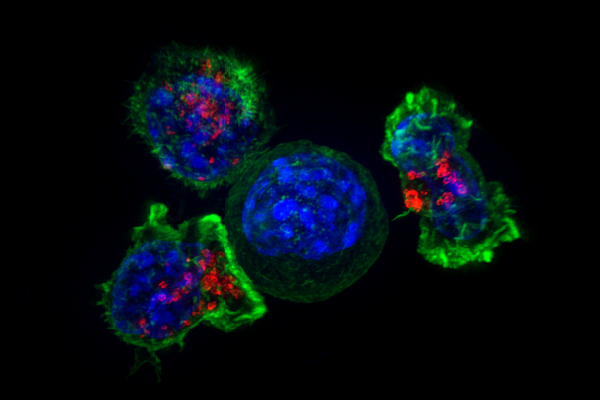Can a healthy lifestyle prevent cancer?

A large proportion of cancer cases and deaths among U.S. individuals who are white might be prevented if people quit smoking, avoided heavy drinking, maintained a BMI between 18.5 and 27.5, and got moderate weekly exercise for at least 150 minutes or vigorous exercise for at least 75 minutes, according to a new study published online by JAMA Oncology.
Cancer is a leading cause of death in the United States.
Mingyang Song, M.D., Sc.D., of Massachusetts General Hospital, Harvard Medical School and the Harvard T.H. Chan School of Public Health, Boston, and Edward Giovannucci, M.D., Sc.D., of the Harvard T.H. Chan School of Public Health and Harvard Medical School, Boston, analyzed data from two study groups of white individuals to examine the associations between a "healthy lifestyle pattern" and cancer incidence and death.
A "healthy lifestyle pattern" was defined as never or past smoking; no or moderate drinking of alcohol (one or less drink a day for women, two or less drinks a day for men); BMI of at least 18.5 but lower than 27.5; and weekly aerobic physical activity of at least 150 minutes moderate intensity or 75 minutes vigorous intensity. Individuals who met all four criteria were considered low risk and everyone else was high risk.
The study included 89,571 women and 46,399 men; 16,531 women and 11,731 had a healthy lifestyle pattern (low-risk group) and the remaining 73,040 women and 34,608 men were high risk.
The authors calculated population-attributable risk (PAR), which can be interpreted as the proportion of cases that would not occur if all the individuals adopted the healthy lifestyle pattern of the low-risk group.
The authors suggest about 20 percent to 40 percent of cancer cases and about half of cancer deaths could potentially be prevented through modifications to adopt the healthy lifestyle pattern of the low-risk group.
The authors note that including only white individuals in their PAR estimates may not be generalizable to other ethnic groups but the factors they considered have been established as risk factors in diverse ethnic groups too.
"These findings reinforce the predominate importance of lifestyle factors in determining cancer risk. Therefore, primary prevention should remain a priority for cancer control," the authors conclude.
"We have a history of long delays from discovery to translating knowledge to practice. As a society, we need to avoid procrastination induced by thoughts that chance drives all cancer risk or that new medical discoveries are needed to make major gains against cancer, and instead we must embrace the opportunity to reduce our collective cancer toll by implementing effective prevention strategies and changing the way we live. It is these efforts that will be our fastest return on past investments in cancer research over the coming decades," write Graham A. Colditz, M.D., Dr.P.H., and Siobhan Sutcliffe, Ph.D., of Washington University School of Medicine, St. Louis.
More information: JAMA Oncol. Published online May 19, 2016. DOI: 10.1001/jamaoncol.2016.0843
JAMA Oncol. Published online May 19, 2016. DOI: 10.1001/jamaoncol.2016.0889

















